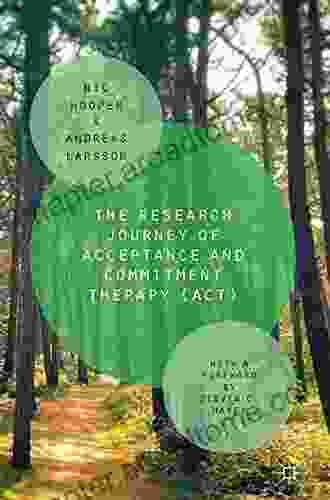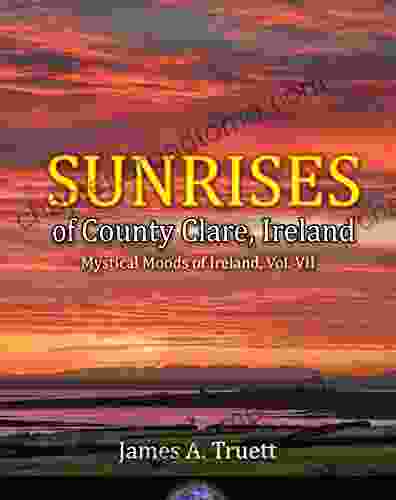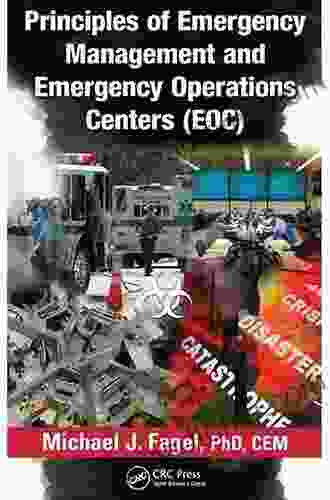The Research Journey of Acceptance and Commitment Therapy Act

A Pioneering Psychological Intervention
Acceptance and Commitment Therapy Act (ACT) is a groundbreaking psychological intervention that has revolutionized the treatment of mental health conditions. Developed by Steven C. Hayes in the 1980s, ACT is based on the principles of acceptance and mindfulness, encouraging individuals to accept their thoughts and feelings without judgment, while simultaneously working towards meaningful life goals.
4.7 out of 5
| Language | : | English |
| File size | : | 736 KB |
| Text-to-Speech | : | Enabled |
| Screen Reader | : | Supported |
| Enhanced typesetting | : | Enabled |
| Word Wise | : | Enabled |
| Print length | : | 238 pages |
Theoretical Underpinnings
ACT is rooted in a comprehensive theoretical framework known as Relational Frame Theory (RFT). RFT posits that human language and cognition are derived from contingencies of reinforcement, and that our psychological suffering often arises from attempts to control our thoughts and emotions through language.
ACT teaches individuals to recognize and defuse from psychological traps, such as cognitive distortions and experiential avoidance. By accepting their thoughts and feelings as fleeting mental events, rather than trying to suppress or change them, people can break free from the cycle of suffering and move towards valued actions.
Empirical Evidence
A wealth of research has demonstrated the efficacy of ACT for a wide range of mental health conditions, including anxiety, depression, chronic pain, and addiction. Randomized controlled trials have consistently shown that ACT leads to significant improvements in psychological symptoms, quality of life, and overall well-being.
Studies have also revealed that ACT is effective in diverse populations, including youth, adults, and older adults. The intervention has also been successfully adapted for use in various settings, such as individual therapy, group therapy, and self-help programs.
Transformative Applications
Beyond its therapeutic applications, ACT has also gained recognition for its transformative potential in other areas of life. By fostering acceptance, mindfulness, and values-based living, ACT can enhance resilience, promote emotional regulation, and improve relationships.
ACT has been successfully implemented in educational settings, workplaces, and healthcare organizations to promote well-being and increase productivity. The principles of ACT can also be applied to personal growth and self-improvement, helping individuals live more fulfilling and meaningful lives.
Key Research Milestones
The research journey of ACT has been marked by numerous milestones, including:
- The development of RFT as a theoretical foundation for ACT.
- The publication of Hayes' seminal book, "Acceptance and Commitment Therapy: An Experiential Approach to Behavior Change" in 2005.
- The establishment of the International Society for ACT in 2008.
- The release of the "ACT Matrix," a visual model that encapsulates the core principles of ACT.
- The ongoing development and refinement of ACT techniques and protocols.
The Future of ACT Research
The research journey of ACT is far from over. Researchers continue to explore new applications for ACT, examine its mechanisms of change, and refine its techniques. Future research will likely focus on:
- Developing new ACT interventions for specific mental health conditions and populations.
- Investigating the long-term outcomes of ACT therapy.
- Examining the role of ACT in promoting well-being and resilience.
- Integrating ACT with other evidence-based therapies.
The research journey of Acceptance and Commitment Therapy Act has been a remarkable endeavor that has transformed the field of mental health. ACT has emerged as a powerful and effective intervention that empowers individuals to accept their experiences, cultivate mindfulness, and live in accordance with their values. As research continues to expand, ACT is poised to have an even greater impact on the lives of countless people around the world.
4.7 out of 5
| Language | : | English |
| File size | : | 736 KB |
| Text-to-Speech | : | Enabled |
| Screen Reader | : | Supported |
| Enhanced typesetting | : | Enabled |
| Word Wise | : | Enabled |
| Print length | : | 238 pages |
Do you want to contribute by writing guest posts on this blog?
Please contact us and send us a resume of previous articles that you have written.
 Book
Book Novel
Novel Page
Page Chapter
Chapter Text
Text Story
Story Genre
Genre Reader
Reader Library
Library Paperback
Paperback E-book
E-book Magazine
Magazine Newspaper
Newspaper Paragraph
Paragraph Sentence
Sentence Bookmark
Bookmark Shelf
Shelf Glossary
Glossary Bibliography
Bibliography Foreword
Foreword Preface
Preface Synopsis
Synopsis Annotation
Annotation Footnote
Footnote Manuscript
Manuscript Scroll
Scroll Codex
Codex Tome
Tome Bestseller
Bestseller Classics
Classics Library card
Library card Narrative
Narrative Biography
Biography Autobiography
Autobiography Memoir
Memoir Reference
Reference Encyclopedia
Encyclopedia Shaurya Prakash
Shaurya Prakash Valentim R Alferes
Valentim R Alferes Michael Barton
Michael Barton Mois Benarroch
Mois Benarroch Willem Lammers
Willem Lammers Nifemi Aluko
Nifemi Aluko Naresh Khatri
Naresh Khatri Michael Hausenblas
Michael Hausenblas Nell Foster
Nell Foster Xavier Amador
Xavier Amador Peter R Lord
Peter R Lord Naomi Whittel
Naomi Whittel Michele Kambolis
Michele Kambolis Nicky Nielsen
Nicky Nielsen Shannon Stewart
Shannon Stewart Nicholas Hyde
Nicholas Hyde Michael Camille
Michael Camille Niranjan Khandelwal
Niranjan Khandelwal Nancy Ogaz
Nancy Ogaz Jessica Weil
Jessica Weil
Light bulbAdvertise smarter! Our strategic ad space ensures maximum exposure. Reserve your spot today!

 George Bernard ShawExplore the World Through the Eyes of Children: Immerse in the Delightful...
George Bernard ShawExplore the World Through the Eyes of Children: Immerse in the Delightful... Cortez ReedFollow ·5.7k
Cortez ReedFollow ·5.7k Colt SimmonsFollow ·8.6k
Colt SimmonsFollow ·8.6k Joseph ConradFollow ·16.5k
Joseph ConradFollow ·16.5k J.R.R. TolkienFollow ·18.8k
J.R.R. TolkienFollow ·18.8k Jamal BlairFollow ·12k
Jamal BlairFollow ·12k Doug PriceFollow ·2.9k
Doug PriceFollow ·2.9k Jaylen MitchellFollow ·11.1k
Jaylen MitchellFollow ·11.1k Albert ReedFollow ·7.3k
Albert ReedFollow ·7.3k

 Samuel Beckett
Samuel BeckettPortrait of the Plague Doctor: A Chilling Tale of Fear...
Prologue: A...

 Elliott Carter
Elliott CarterTrends in Modeling and Simulation Studies in...
Unveiling the Convergence of...

 Natsume Sōseki
Natsume SōsekiCells For Kids: Science For Children
Unlock the Microscopic...
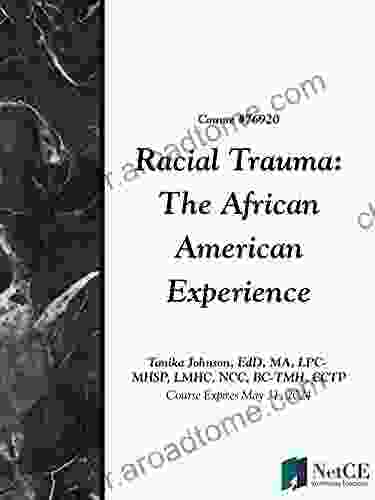
 Anthony Wells
Anthony WellsUnlock the Power of Understanding: Embrace the African...
Embark on a Journey of Truth,...
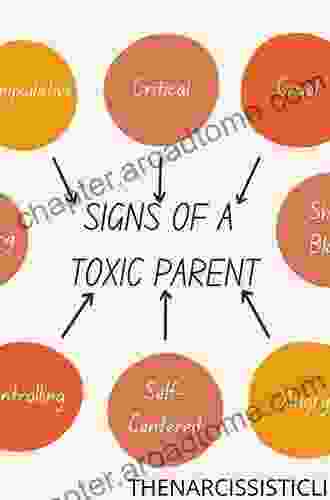
 Forrest Reed
Forrest ReedBreaking Free: Healing from Toxic Relationships Between...
Are you struggling...
4.7 out of 5
| Language | : | English |
| File size | : | 736 KB |
| Text-to-Speech | : | Enabled |
| Screen Reader | : | Supported |
| Enhanced typesetting | : | Enabled |
| Word Wise | : | Enabled |
| Print length | : | 238 pages |


